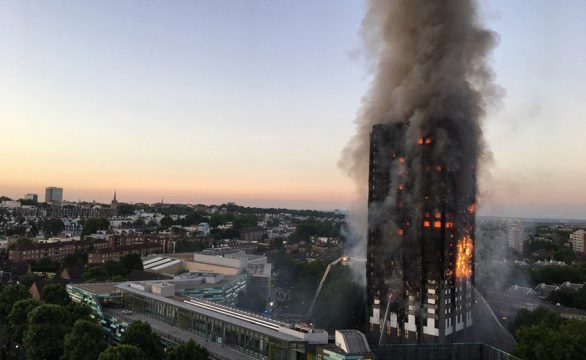The desperate search for answers in the wake of the Grenfell Tower horror will continue for years. Given that the response to the tragedy has already been found wanting, it was a relief to hear on Thursday the prime minister prioritise quick, incremental action. “We cannot wait for ages to learn the immediate lessons,” Theresa May told the Commons.
Some 600 towers have been identified for checking, with at least seven already shown to be “combustible” at the time of writing. All local authorities responsible for the flats have been told. It goes without saying that residents must be too. Already Camden is acting to remove the cladding used on its Chalcots Estate.
But the PM had a message for the private sector too: “I urge any landlord who owns a building of this kind to send samples for testing as soon as possible. Any results will be communicated immediately to local authorities and local fire services. Landlords have a legal obligation to provide safe buildings and where they cannot do that we expect alternative accommodation to be provided.”
She rightly acknowledged that “for too long residents have been overlooked and ignored”, and here had something much more fundamental to say. “As we move forwards, so we must also recognise that for too long in our country, under governments of both colours, we simply haven’t given enough attention to social housing,” she said.
In the midst of an election battle that sort of talk is commonplace; in the wake of such a catastrophe as Grenfell it has to mean something.
It is a statement that has to signal binding change.
In identifying the problem May has done the easy bit. She now has to show herself to be serious about considering every option to solve it. It won’t be easy.
Over several decades successive governments have not discouraged the perception that it is the private sector’s responsibility to provide adequate housing of all tenures.
To allow large sections of the public to view housebuilders and developers as first and foremost an extension of the welfare state, with profits coming only after these needs have been satisfied, is, on the part of government, a dereliction of duty.
That is not to say these businesses should contribute less to the public purse, nor that each has always behaved responsibly. But just as regulatory reform is vital, can May really deliver the change to social housing she says is necessary without fundamental reform of its funding mechanisms?
A major rethink is required, underscored by clarity, openness on both sides, a collaborative approach to reform and a clearer delineation of responsibilities.
Creative thinking is possible, evidenced by Berkeley Homes and Prudential’s St Edward joint venture, which this week said it would be selling 68 affordable units to provide housing for former Grenfell Tower residents at cost.
The flats at 213-215 Warwick Road, W14, part of the affordable housing provision for St Edward’s Kensington Row project, were due for completion in a few months’ time and would probably have been sold to a housing association and socially rented.
St Edward is now more than doubling the number of workers on site to around 500 to bring forward completion to the end of July.
The acceleration of delivery and the foregoing of profit once the £10m sale to the City of London Corporation completes is laudable. But these are two businesses, with fiduciary duties to shareholders and investors, working around the system, not within in it. It further highlights the system should change and how good could come if it does.
LandAid’s Grenfell Tower Appeal has already raised £120,000 and runs until Friday 30 June. If your company wishes to donate to the Appeal, please visit www.landaid.org/support-us/grenfell-tower-appeal
To send feedback, e-mail damian.wild@egi.co.uk or tweet @DamianWild or @estatesgazette











